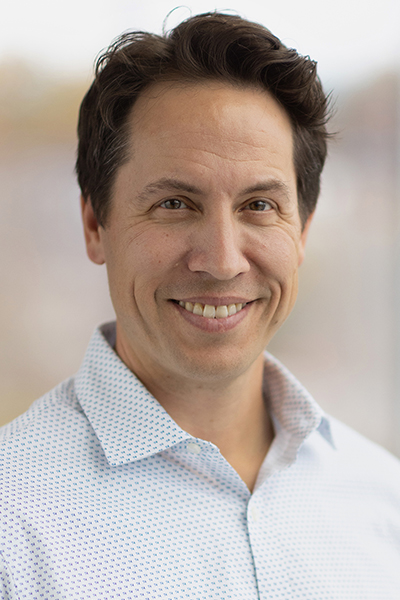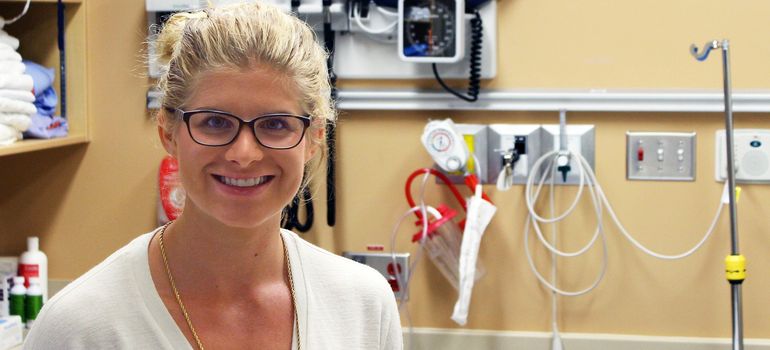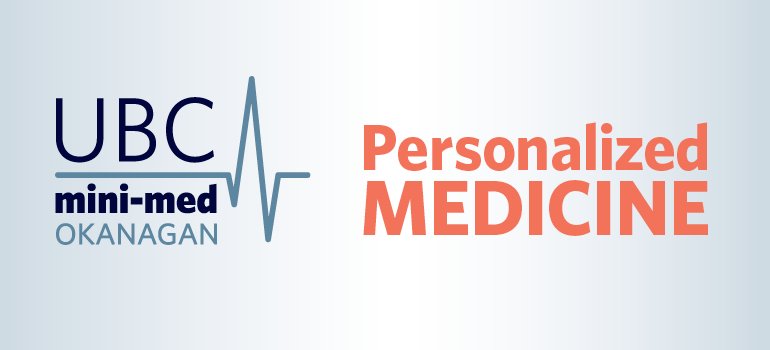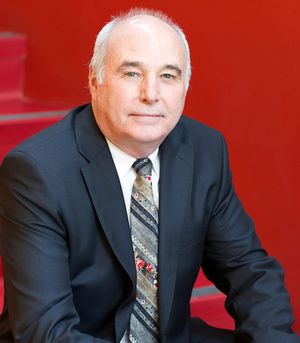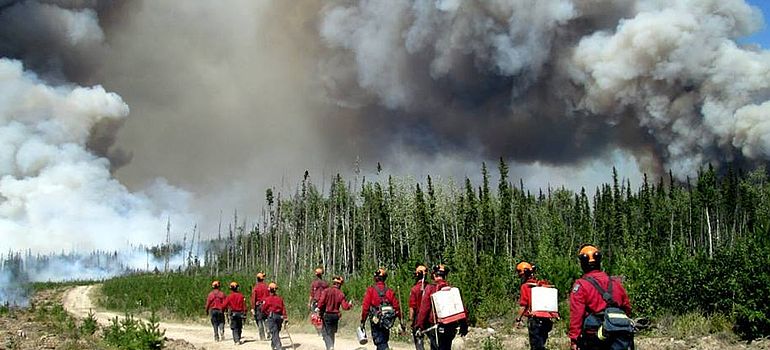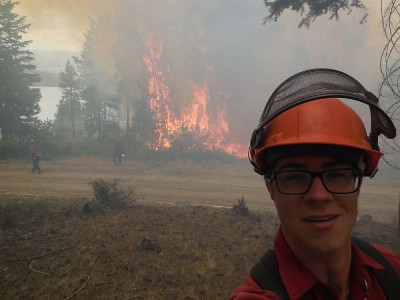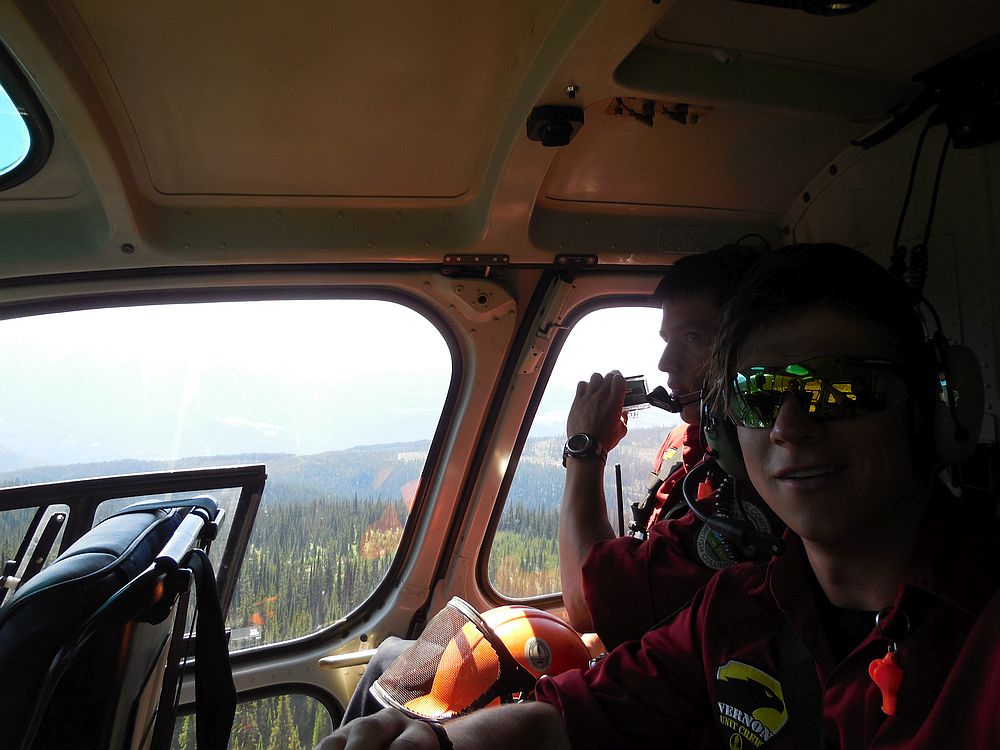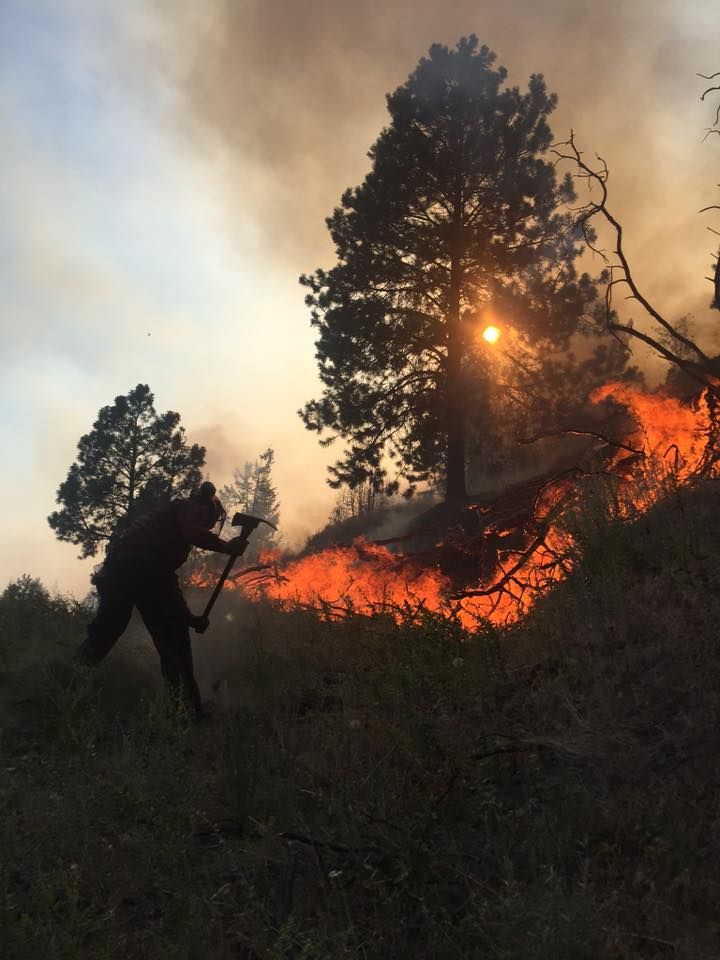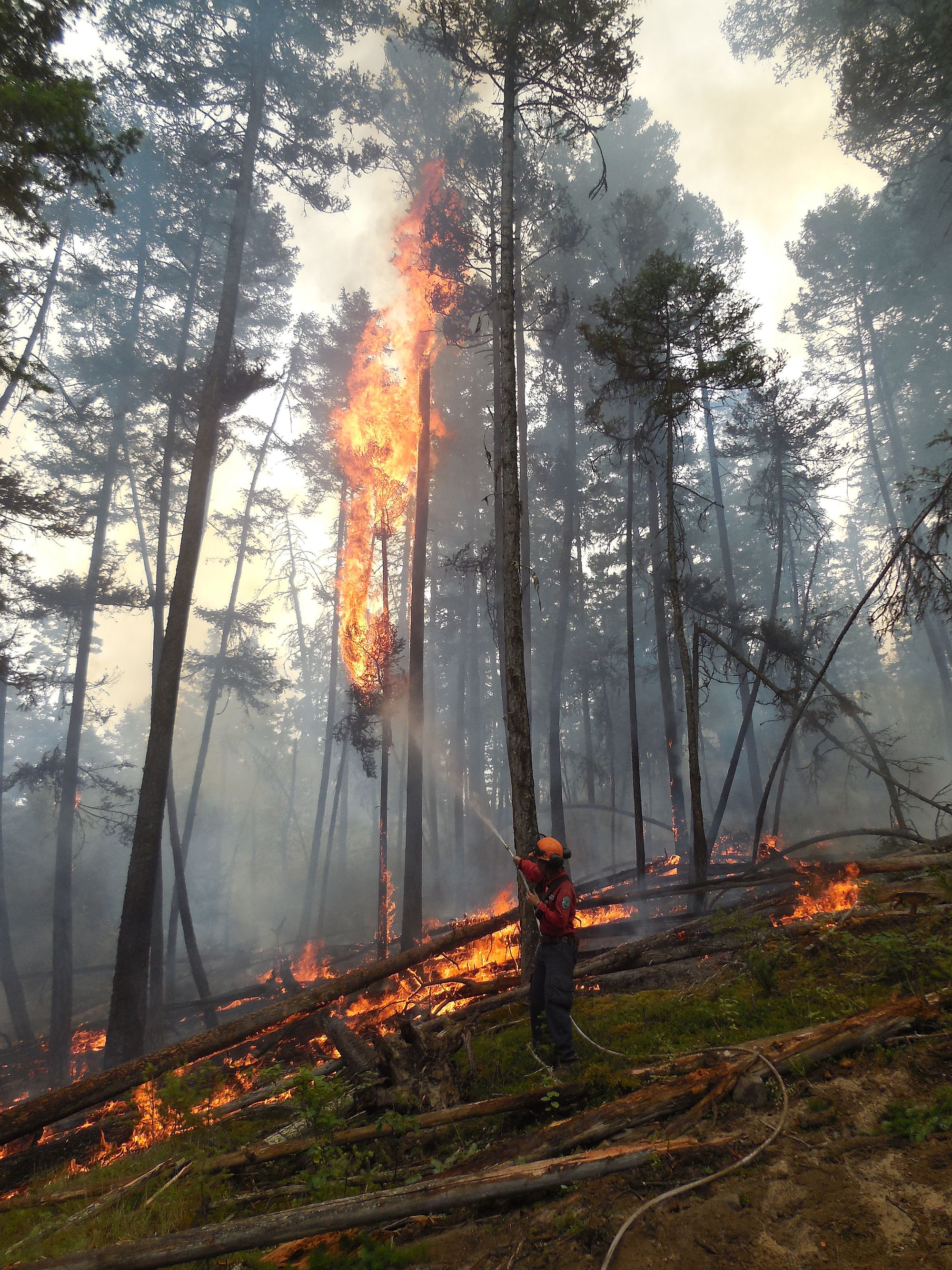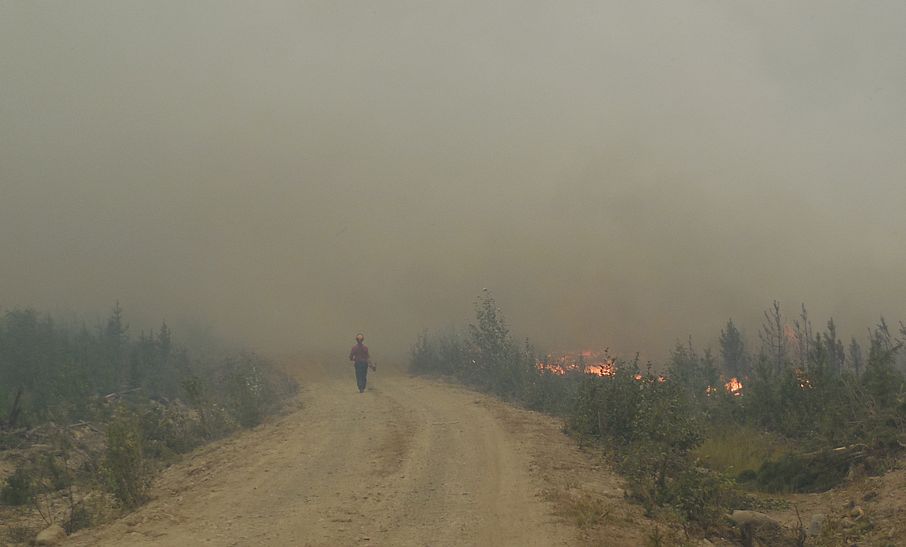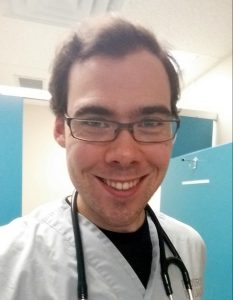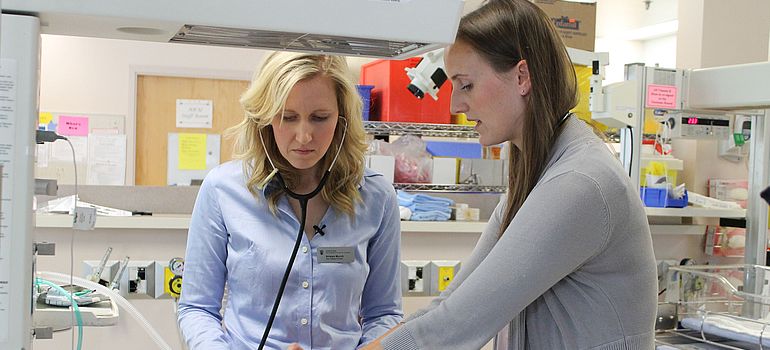
(Story by Kerry Blackadar)
Only a short time ago, Mark Szynkaruk had never been to Trail, B.C., let alone the communities of Nakusp, Castlegar or Salmo.
But, over the next two years, he’ll come to call the region home. And it’s not just the bends of the Slocan River, or the peaks of the Selkirk Mountains that he’ll come to know. As a new family medicine resident in Kootenay Boundary, Dr. Szynkaruk will be working alongside local physicians and health care providers to gain ‘in practice’ experience on his road to becoming a rural family physician.
“The community has been so supportive and is incredibly invested,” says Dr. Szynkaruk, reflecting on his first few weeks of residency. “From the first day, I could feel the energy.”
As a recent graduate of the University of Toronto’s medical school, Dr. Szynkaruk is now embarking on the next stage of his medical career, joining three other residents as part of the first cohort of UBC’s newly-launched rural family medicine residency in Kootenay-Boundary.
Over the course of his two-year residency, Dr. Szynkaruk, alongside family medicine residents Drs. Alana Benes, Gabe Krahn, and Gretchen Snyman will take on a range of traditional rotations, from surgery and cardiology through to pediatrics, in addition to family practice rotations in Trail and Nelson. They’ll also spend time serving patients in smaller centres, including Christina Lake, Grand Forks, Nakusp, Castlegar and Salmo.
Filling a need

Dr. Cheryl Hume
According to the site director, UBC’s Dr. Cheryl Hume, who has served as a rural family physician in Trail for close to three decades, the new training site represents a significant development for Kootenay Boundary.
“With the arrival of these new residents, access to physician services will be enhanced, helping to improve patient care in our region,” says Dr. Hume.
Next year, the site will take on four new residents, bringing the total number to eight residents across the two-year program by July 2016.
But the Kootenay Boundary site, which joins UBC’s Family Medicine Residency Program as the 17th family medicine training location, is not just about filling short-term needs — it’s about long-term investment in the health of communities in the region.
“We hope to see this site help support future physician recruitment and retention to our area,” says Dr. Hume, who has been at the forefront of recruitment and retention efforts in the region for many years and also serves as the director of UBC’s Integrated Community Clerkship in Trail, a program designed to give third-year medical students a taste of clinical and hospital experience in a rural setting.
“This new training site in Kootenay Boundary will give medical residents the opportunity to experience how gratifying it is to practice medicine in a rural area and encourage them to consider a future career in rural family practice,” she adds.
According to Dr. Allan Jones, the Regional Associate Dean, Interior, the new site will also open up more opportunities for students of UBC’s Southern Medical Program, based in Kelowna, to continue training in the Interior, inevitably supporting the long-term recruitment and retention of physicians across the region.
New arrivals bring new hope
For Dr. Szynkaruk, who grew up on a cattle farm outside of Kamoka, northwest of London, Ontario, the prospect of completing his residency in a rural area is very attractive.
“I really like the rural lifestyle and feeling part of the community. That’s what really drew me to rural family practice — I want to know my patients, and really contribute by offering support to people in my community, not only as a physician, but as a friend over time,” says Dr. Szynkaruk.

Back row (L-R): Dr. Mark Szynkaruk, Dr. Gabe Krahn, Mayor of Trail Mr. Mike Martin, Mayor of Rossland Ms. Kathy Moore, Site Director Dr. Cheryl Hume, Mr. Don Nutini (LCCDTS).Front row (L-R): Medical students Kara Perdue, Mikaela Forkheim, Jennifer McCormack, then Dr. Alana Benes, Dr. Gretchen Snyman and Castlegar Recruitment officer Cheryl Gnyp. Image Credit: Submitted
It’s a sentiment echoed by his fellow residents, including Dr. Alana Benes, who grew up in Surrey and completed her Bachelor of Medical Laboratory Science and MD at UBC.
“I want to be the kind of family doctor that is really involved, spending time in my clinic, as well as following up with my patients when they’re in hospitals and extended care facilities, and picking up shifts in the emergency department, and delivering babies,” says Dr. Benes. “Rural family practice really offers a much broader scope of practice — it’s my style of medicine.”
And, given the incredible response from the local communities of Kootenay Boundary, gaining a wide range of experience, and building close connections won’t be difficult.
“Everyone is so excited about the arrival of the new residents,” says Dr. Hume. “The response has been overwhelming.”
It was this same enthusiasm — and dedication from local physicians, who played a vital role in the site’s development — that first encouraged Dr. Willa Henry, the Program Director of UBC’s Family Medicine Program, to select Kootenay-Boundary as the home of the program’s next rural training site.
“It was an easy decision to choose the Kootenay Boundary as a site for our rural residency program,” says Dr. Henry. “For many years, the area’s physicians have shown a dedication and enthusiasm for training future physicians.”
“We are delighted that the expansion and distribution of postgraduate medical education to Kootenay Boundary is warmly embraced by the local region as we strive to meet the health needs of communities within Interior Health,” adds Dr. Roger Wong, Associate Dean of Postgraduate Medical Education.
And the response from the community has not gone unnoticed by the residents.
“I feel a bit like a local celebrity,” says Dr. Benes. “My patients all seem to know who I am.”
“I didn’t realize how much the community was behind this program,” adds Dr. Szynkaruk, who says he could envision himself staying in the region to practice after his residency wraps up.
For now, with a few more years left before reaching his goal of becoming a rural family doctor, Dr. Szynkaruk plans to embrace all the learning opportunities he can get, while getting to know the bends of the Slocan River a little better.
The expansion and distribution of postgraduate training sites is part of the University of British Columbia Faculty of Medicine’s goal of increasing the number of doctors in training, and placing them in communities where they are needed most. This summer, in addition to the family medicine residency in Kootenay Boundary, a new four-year pediatric residency on Vancouver Island accepted its first two residents.
